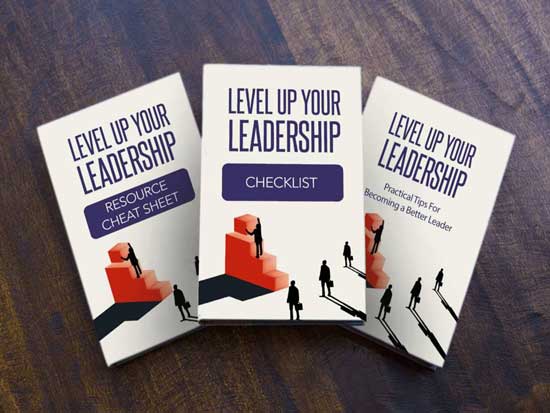
When I stepped into the role of Chief Financial Officer at an insurance company, I discovered the benefits of adopting participative leadership.
I inherited a major transformation project, a new accounting system and an insurance module pack that were already causing daily frustration.
The finance and insurance teams were overwhelmed. Glitches were piling up, deadlines were slipping, and people felt their concerns were disappearing into a black hole.
As the “new leader,” I was expected to push the implementation through. Instead, I called a meeting with everyone involved -finance, insurance operations, IT, and the vendors.
I asked one simple question: Tell me what is really getting in your way.
The room that had been tense and guarded suddenly opened up. Issues surfaced that senior management had never heard. The vendors finally understood the real impact on the ground.
That meeting became the turning point of the project and of my leadership style. I realized that leadership isn’t about proving you have the answers; it’s about creating the space where the right answers can emerge.
Within weeks we saw reduced processing errors, clearer ownership of fixes, and far stronger accountability from the vendors who now had to address real, documented concerns.
There are many paths to effective leadership, and the style you choose can dramatically shape your results.
Decades of management research show that participative leadership, which is often called democratic leadership, consistently outperforms purely authoritative models in productivity, engagement, and innovation.
What Is Participative Leadership?
Participative leadership is a collaborative approach to decision-making. Instead of leadership being a one-way flow of instructions, power is shared. Team members are invited to contribute ideas, challenge assumptions, and help shape outcomes.
In my earlier post on situational leadership, I described participative leadership as one of the most powerful tools in a leader’s toolkit.
Here, we’ll explore how this style works in practice, the benefits it creates, and the hurdles you’ll need to navigate to use it effectively.
At its core, participative leadership is the difference between giving orders and building consensus. Employees are not just implementers; they become co-creators of solutions.
Studies consistently link this approach to higher job satisfaction, stronger morale, and more creative problem-solving.
Consider a simple example of office relocation.
- An autocratic leader might select the new site, issue a checklist, and expect compliance.
- A participative leader would form a cross-functional team, invite feedback on locations, and involve employees in planning the logistics.
The second approach takes more conversation, but it builds ownership, reduces resistance, and usually delivers a better decision.
A Simple Framework to Try at Your Next Meeting
Use this research-backed structure to introduce participative habits:
- Start with a shared definition of the problem.
- Invite each person to offer their perspective.
- Facilitate a focused discussion, capturing ideas visually on a whiteboard.
- Agree on next steps and assign shared responsibilities.
Small shifts like these can transform how your team experiences your leadership.
Maximizing the Advantages of Participative Leadership
Earn trust
Collaboration thrives only where trust exists. This means trust in character, competence, and intention. Transparency and consistency are non-negotiable.
Strengthen relationships
Open communication draws people together. Teams that talk honestly at work often develop healthier professional bonds—and greater loyalty.
Increase engagement
In my post on psychological safety in the workplace, I shared that according to one McKinsey survey, an overwhelming 89 per cent of employee respondents said they believe that psychological safety in the workplace is essential. The report recommends a consultative leadership style.
Gallup discovered, through studying what the best managers do differently, that great managing is an act of coaching, not one of directing and administrating.
One of Gallup’s most famous leadership breakthroughs, based on meta-analytics of 100 million employee interviews, is that a full 70% of the variance between highest engaged teams and persistently disengaged teams is just the manager.
Giving people a real voice is one of the fastest ways to rekindle commitment.
Celebrate diversity of thought
One of the greatest strengths of participative leadership is welcoming contributions from team members with a variety of talents and backgrounds. This leads to richer analysis and smarter solutions.
Reward innovation
When it’s safe to speak up, ideas flow. Many breakthroughs begin with a suggestion that would never surface in a command-and-control culture.
Overcoming Common Obstacles
Clarify the vision
Collaboration doesn’t replace direction. Your team needs a compelling mission and clear priorities to channel their contributions. Motivating and inspiring your team becomes even more important when you expect them to make greater contributions.
You need a clear mission that appeals to employees’ emotions and core values. Scheduling regular one-on-one time and providing adequate resources also helps.
Teach communication skills
Active listening, constructive feedback, and respectful debate are learned abilities. Offer training sessions and post helpful reminders around the office.
Plan for delays
Group decisions can take longer. Build alternative processes for time-sensitive situations.
Provide structure
Planning ahead can also speed up discussions. Circulate an agenda before meetings, so attendees will come prepared and stick to the subject. Hire a professional facilitator or use a staff member.
Set boundaries
Not every topic requires universal input. The participative model works best with issues where your staff has at least a minimum level of expertise. Limit input on some matters to those who meet certain qualifications.
Manage dissent
After your team votes, what do you say to the members who were in the minority? Make it clear from the start that that once a decision is made, the whole team must support it – even those who voted differently.
Stay decisive
Democracy does not mean abdication. Even in the most democratic workplace, there will be stalemates or decisions that are ill-suited to group deliberations. You’ll still need to take responsibility for resolving sensitive or strategic issues that affect the future of your organization.
Leaders who consistently apply participative methods see measurable gains in morale, creativity, and results.
The real question is not whether this style works, but how intentionally you will develop it.
Which one strategy will you put into practice first?
Ready to strengthen your leadership skills?
If you want a practical, step-by-step way to grow from manager to influential leader, then my digital program Level Up Your Leadership gives you the tools to:
- Lead confident, high-participation meetings
- Communicate with clarity and authority
- Handle resistance and difficult conversations
- Build trust without losing decisiveness
👉 Explore it here: https://payhip.com/b/n1BGe
Your next level of leadership begins with the way you invite others in.




 I adhere to the Certified Coaches Alliance Code of Ethics and Standards. A copy is available on request.
I adhere to the Certified Coaches Alliance Code of Ethics and Standards. A copy is available on request.
 Let's Talk through the Connect Form:
Let's Talk through the Connect Form: